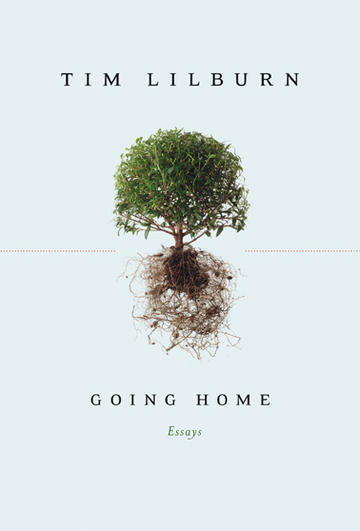Like his contemporaries Robert Bringhurst, Ronald Wright, Dennis Lee, Don McKay, and Jan Zwicky, Tim Lilburn has long been a deep thinker on issues of ecology and writing, and on how the two fit together philosophically, morally, and ethically.
In Going Home, Lilburn addresses how we relate (often uneasily) to our physical landscape in Canada and the United States.Retrieving an almost lost strand in the Western intellectual tradition -- the erotic, contemplative strand, from Plato to John Cassian to the Areopagite -- Lilburn traces a history of eros and desire in the hope that this exercise and its awakening can lead us home to a full residence in North America. Surprising and enlightening, the collection finishes with two unforgettable personal essays, where Lilburn writes about his effort to enact desire in the place where his ancestors are buried, the flatlands and coulees of southern Saskatchewan.
Tim Lilburn was born in Regina, Saskatchewan. He has published eight books of poetry, including To the River, Kill-site, and Orphic Politics. His work has received the Governor General’s Literary Award for Poetry for Kill-site and the Saskatchewan Book of the Year Award (for To the River), among other prizes. Lilburn has produced two essay collections, both concerned with poetics, eros, and politics, Living in the World as if It Were Home and Going Home, and edited two other collections on poetics, Poetry and Knowing and Thinking and Singing: Poetry and the Practice of Philosophy. He was a participant in the 2008 Pamirs Poetry Journey. Lilburn teaches at the University of Victoria.
- Short-listed, Hubert Evans Non-Fiction Prize
Lilburn, using a passionate and often densely philosophical language, tries to reawaken readers to the poetics of desire, to an erotic attachment to our own land...His passion is palpable.
[Lilburn] possess award-winning talent . . attempting to resuscitate our North American lack of attentiveness and our lapsed ability to feed on place...Lilburn is a deep, serious thinker.



